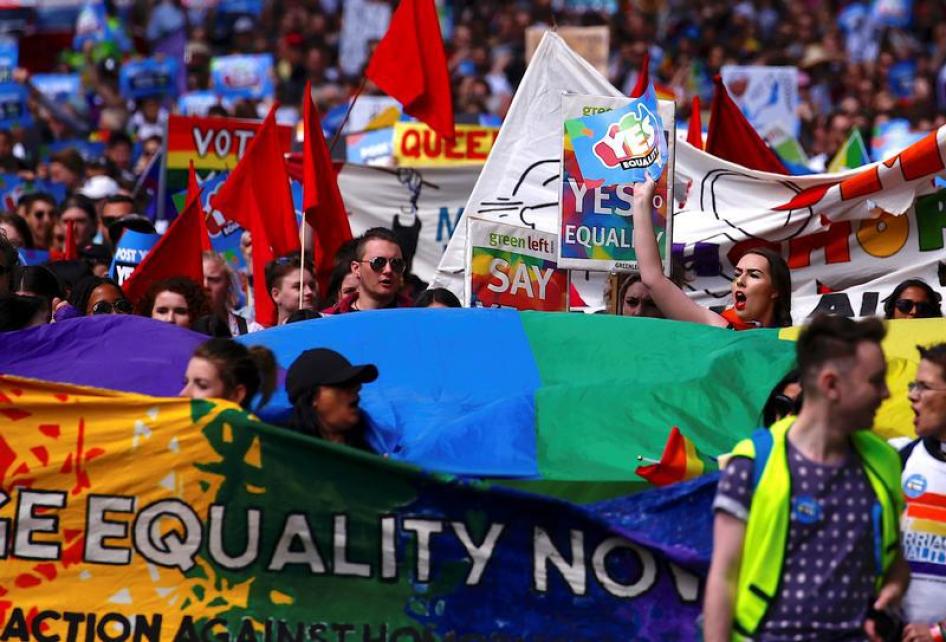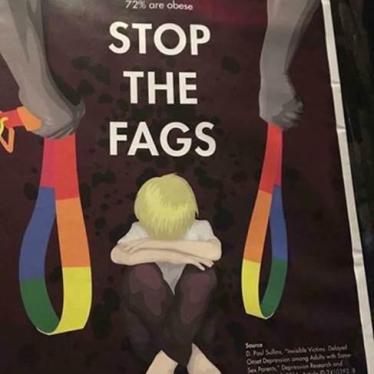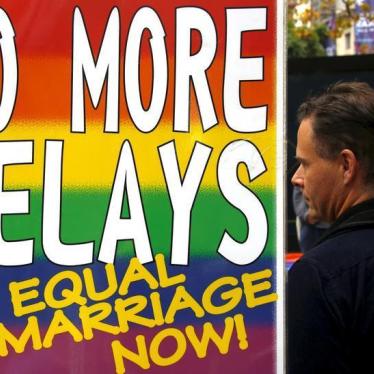(Sydney) – The Australian government should introduce marriage equality legislation without delay, following results of the national postal survey in favor of marriage equality, Human Rights Watch said today. 61.6 percent of respondents voted for equal marriage rights for same-sex couples. The postal survey had high response rates, with 79.5 percent of eligible voters returning the poll.
On September 10, 2017, in a speech for the Yes campaign for same-sex marriage, Prime Minister Malcolm Turnbull said: “If a majority votes yes, then we will ensure a private members’ bill is presented to the parliament which will legalize same-sex marriage and our expectation is that should be accomplished by the end of the year. It will sail through the parliament.”
“The Australian people have spoken,” said Boris Dittrich, advocacy director of the lesbian, gay bisexual, and transgender (LGBT) rights program at Human Rights Watch. “Now, the Australian government and parliament should end this period of political indecisiveness and adopt marriage equality legislation immediately. Gay, lesbian and bisexual Australians have been waiting for a long time for marriage equality, and now is the time to deliver.”
The postal survey, from September 12 to November 7, asked Australians “Should the law be changed to allow same-sex couples to marry?” According to the government, the survey cost up to 122 million Australian dollars (US$93 million).
But the postal survey in effect submitted the human rights of the LGBT population to a popularity contest, putting gay, lesbian and bisexual people in a vulnerable position, Human Rights Watch said. For two months, their lives and identities were open to public debate, scrutiny, evaluation and sometimes abuse.
During this period, some groups opposing marriage equality used scare tactics to lure voters to their side. Opponents stoked fears that a “yes” victory would pose a threat to religious freedom. The opponents circulated posters and advertising campaigns with misleading information and sometimes outright lies.
If marriage equality legislation is adopted in parliament before the end of 2017, Australia will become the 25th country with marriage equality. Similar legislation is also being prepared in other countries, including Chile and Taiwan.
The Netherlands was the first country in the world with marriage equality with a bill that came into force in 2001.
“Rights of minorities aren’t something that should be put to a popular vote," Dittrich said. “Politicians should act quickly now to bring Australia into line with other like-minded nations on marriage equality.”









